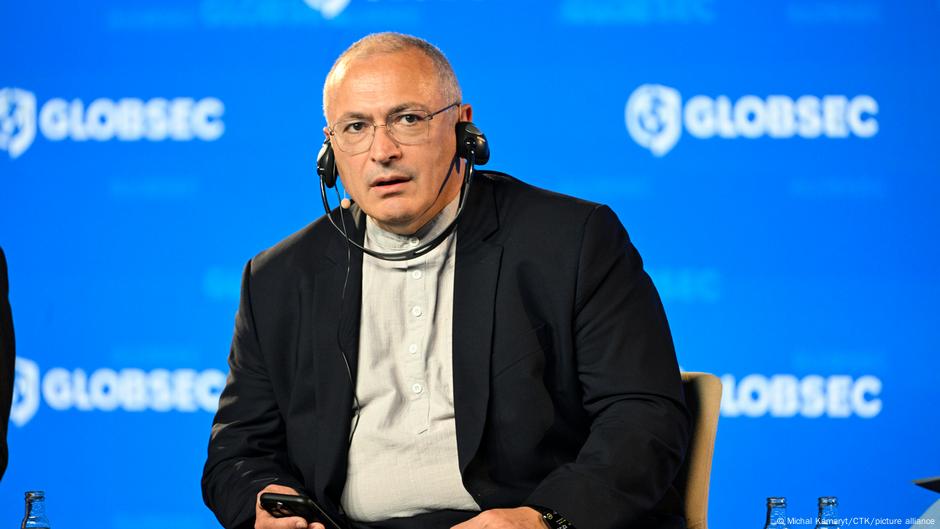Russia’s domestic intelligence agency, the Federal Security Service (FSB), announced on Tuesday that it had initiated a new investigation into exiled Kremlin critic Mikhail Khodorkovsky, accusing him of having created a “terrorist organization” and plotting to violently seize power in the country.
The FSB said the accusations facing Khodorkovsky stem from his ties to the so-called Anti-War Committee of Russia — a group that he backs, but which has been banned by the Kremlin.
Khodorkovsky not alone, 20 more being investigated by FSB
In its announcement, the FSB named more than 20 individuals being investigated alongside Khodorkovsky. These include prominent dissidents Vladimir Kara-Murza, Garry Kasparov, Mikhail Kasyanov, Sergey Aleksashenko and Sergei Guriev.
The move to investigate comes less than two weeks after the Parliamentary Assembly of the Council of Europe — a human rights forum of lawmakers from 46 European countries that Russia left in 2022 after invading Ukraine — announced that it was creating what it called a “platform for dialogue” with exiled Russian democratic organizers.
The FSB accuses Khodorkovsky of pitching the group as a replacement for Russia’s current leadership, it further accuses him of bankrolling Ukrainian paramilitaries in an effort to seize power.
In a statement on the messaging app Telegram, Khodorkovsky denied the accusations and called the investigation a sign that the Kremlin sees the Council of Europe initiative as “a major problem.”
“Hence the new cases about ‘seizing power,’ the lies about ‘recruiting’ and ‘arming the Ukrainian military.'”
Who is Khodorkovsky?
Khodorkovsky, once the richest man in Russia, has lived in exile since being pardoned in 2013 after serving a 10-year prison sentence in Siberia on fraud charges largely seen as having been politically motivated.
President Vladimir Putin‘s Kremlin designated Khodorkovsky a “foreign agent” in 2022 after he emerged as a vocal critic of the Ukraine invasion.
Like other critics, Khodorkovsky has remained a thorn in Putin’s side, for instance by founding and backing “undesirable” human rights and anti-corruption organizations.
Edited by: Wesley Rahn
